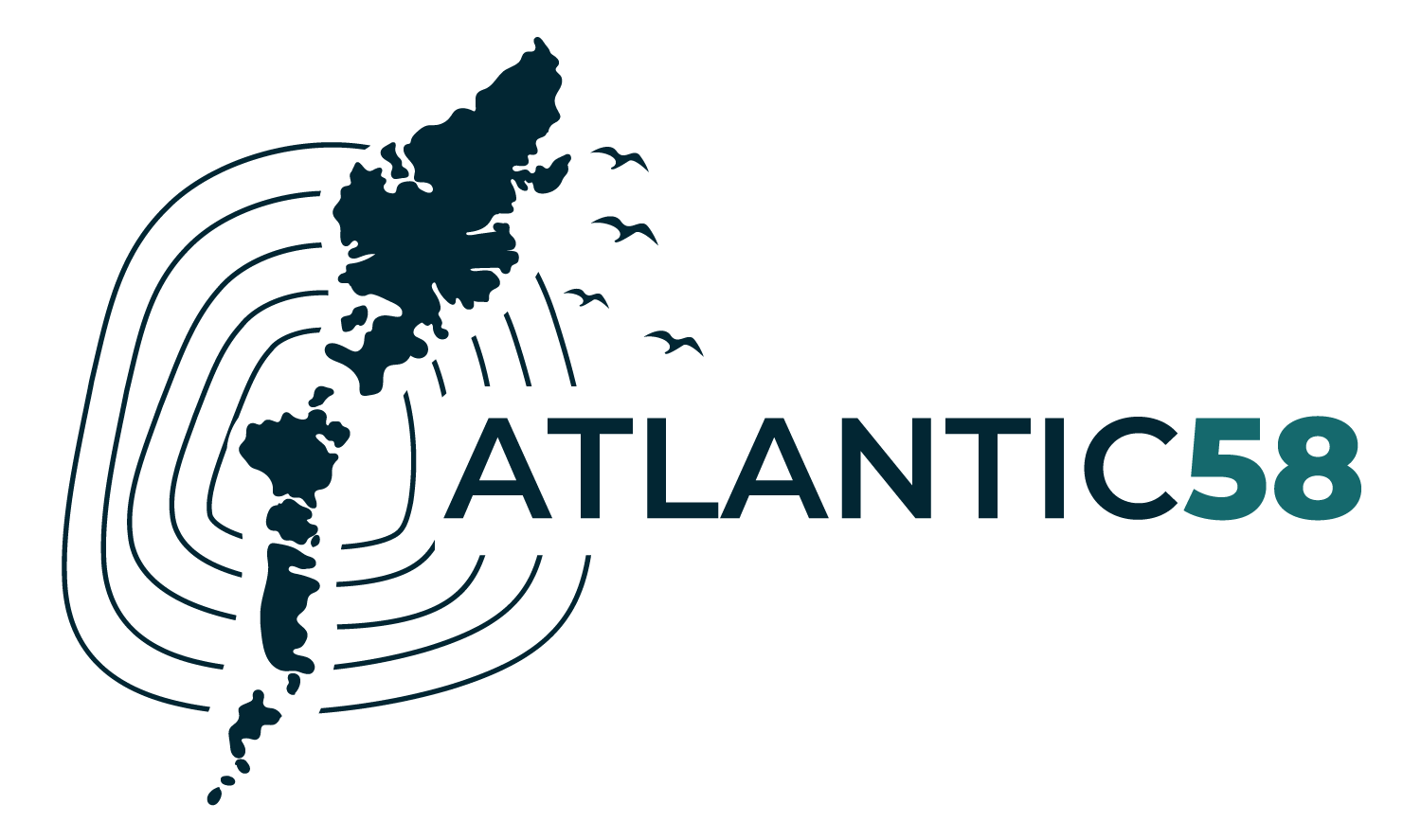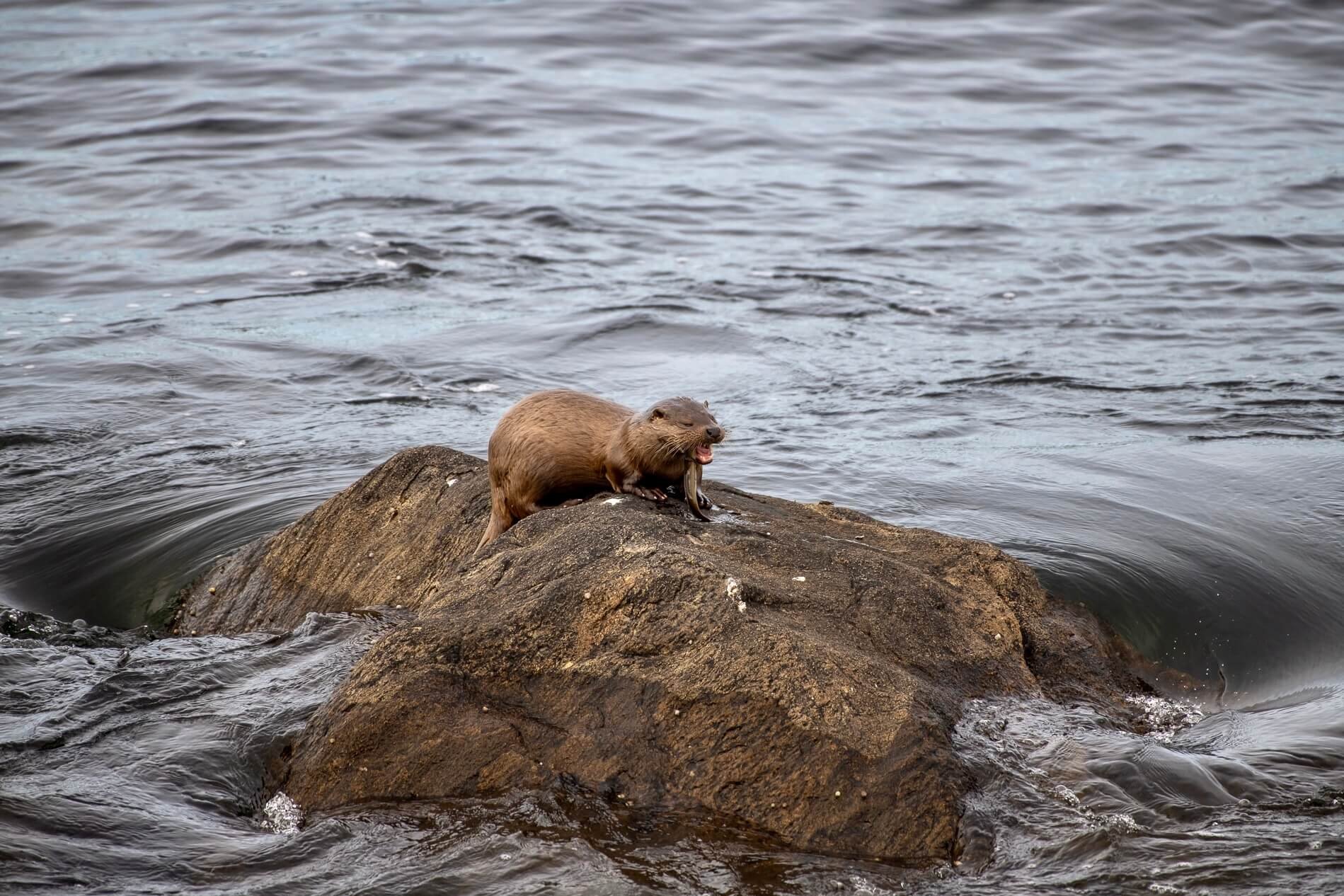Training to ‘Think like an otter’
Photo: Hebridean otter feeding | Barney Ashton
Atlantic58 delivers training to ‘think like an otter’
Ruth, our Senior Ecologist, was invited to RSPB Forsinard Flows (recently awarded World Heritage Site status for its blanket bog habitat) to provide training on all things otter. This was part of a suite of ecological training events for peatland restoration project officers from across Scotland, to ensure restoration targets could be met, whilst protecting and enhancing the existing biodiversity on their sites.
Scotland's peatlands store a significant amount of carbon, acting as carbon sinks to help mitigate climate change. When degraded, however, peatlands release stored carbon contributing to greenhouse gas emissions. Therefore restoring peatlands prevents further carbon loss and enhances biodiversity, supporting unique ecosystems and wildlife.
Scotland has set ambitious goals for peatland restoration as part of its broader environmental and climate change targets including: restoring 250,000 hectares of degraded peatland by 2030 and reaching net-zero by 2024. There are many passionate people working on peatland restoration projects across Scotland. These projects often involve the use of large machinery, and, by its nature, cause significant physical changes to a landscape. Though these changes benefit the climate, environment and biodiversity long term, existing fauna and flora must be given consideration from a legal, and conservation perspective. That’s where we come in.
The day included a classroom session covering otter ecology, legal protection status, survey methods and field signs, with a brief interlude to watch King Charles unveil a plaque to commemorate the UNESCO World Heritage Site. Then a practical session in the peatlands to learn how otters use this habitat, and to carry out an otter survey. Finally we escaped the ferocious Forsinard midges to end the day with a discussion session of the licensing and mitigations we would put in place given the survey results.
Feedback included:
‘The training Ruth delivered was excellent - making even the most technical aspects of EPS licensing understandable and interesting, all while being super engaging and willing to share her expertise. I saw almost every attendee of the course personally thank her for the training afterwards. Follow up conversations I've had with the Peatland Restoration manager are all along the lines of how valuable the training was and how the teams are already implementing and building on what they learned.’
If you require otter survey and licensing training, please get in touch.

